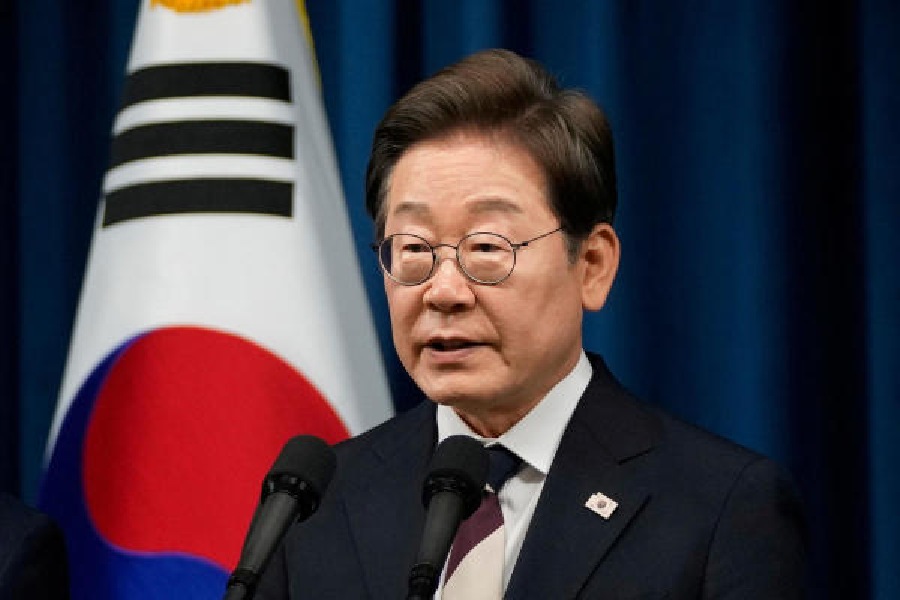Within hours of being elected South Korea’s President, Lee Jae-myung began work on Wednesday by calling for dialogue with its arch enemy, North Korea, to bring peace to the Korean Peninsula, while stressing South Korea’s commitment to its security alliance with the US.
In his nationally televised inauguration speech at the rotunda lobby hall of the National Assembly, Lee reaffirmed diplomatic cooperation with the Trump administration, with whom he must work with to negotiate over tariffs and maintain its security alliance, and pledged to solidify trilateral cooperation with the US and Japan.
But Lee shied away from commenting directly on how he would tackle the thorny diplomatic challenges he faces as President, such as the growing rivalry between the US, South Korea’s only military ally, and China, its largest trading partner.
Unlike his campaign-trail speeches, where Lee called for improving ties with China, his swearing-in address did not mention it by name, reflecting the delicate diplomatic negotiations his government will face. Lee wants to mend his country’s strained relations with China to help spur economic growth. But Washington is asking Seoul to play a bigger role in containing China.
On Wednesday, Lee only made an indirect reference to China: “I will approach relations with neighbouring countries from a perspective of national interest and pragmatism.” In Washington, secretary of state Marco Rubio congratulated Lee on his election, reconfirming the US’s “ironclad commitment” to their alliance. “We are also modernising the alliance to meet the demands of today’s strategic environment and address new economic challenges,” Rubio said.
Lee’s predecessor, Yoon Suk Yeol, who was expelled from office in April after his short-lived imposition of martial law, antagonised Beijing by aligning Seoul more firmly with Washington in the strategic competition between the two superpowers. He also won plaudits from Washington for improving ties with Tokyo to make trilateral cooperation possible.
“We can expect tensions if his government doesn’t align with Washington’s approach to China and Japan,” said Duyeon Kim, a Seoul-based fellow with the Center for a New American Security. “Typically, there has been more policy discord between Seoul and Washington when there was a progressive government in South Korea.”
In Japan, Prime Minister Shigeru Ishiba on Wednesday hoped for an early meeting with Lee.










